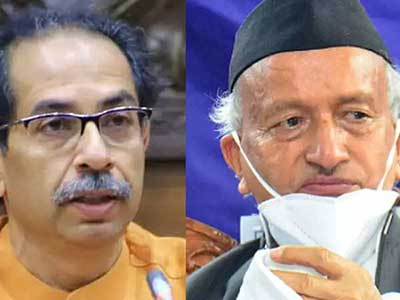Relevance: GS-2: State legislature structure, functioning, conduct of business, powers & privileges and issues arising out of these.
Key Phrases: Executive Powers, Legislative Powers, Floor Test Law, Discretionary Powers, summon, prorogue, Remission, residuary powers.
Context:
- As the Maharashtra political crisis continues to play out, with the Shiv Sena headed for a split and Chief Minister possibly losing majority, the Governor’s powers under the Constitution to call for a floor test takes centerstage.
Governor of a State:
- A Governor is a person who acts as the Executive Head of the state just like the President, who acts as the executive head of India.
- Similar to having a governor for every state in India (Article 153 of the India Constitution), there is a Lieutenant Governor for Union Territories of India.
- The governor is the nominal head of the state.
- He/she is appointed for a term of 5 years by the President of India.
Powers of Governor vis a vis Council of Ministers
Relevant Constitutional Provisions :
- Art 154. Executive power of State
- The executive power of the State shall be vested in the Governor and shall be exercised by him either directly or through officers subordinate to him in accordance with this Constitution.
- Art163. Council of Ministers to aid and advise Governor
- There shall be a council of Ministers with the chief Minister at the head to aid and advise the Governor in the exercise of his functions, except in so far as he is by or under this constitution required to exercise his functions or any of them in his discretion.
- Art 164(1) The Chief Minister is appointed by the Governor and other
Ministers are appointed by the Governor on the advice of Chief Minister.
- Thus the whole State Government is formally appointed by the Governor.
What is a Floor Test?
- A floor test is a motion through which the government seeks to know whether it still enjoys the confidence of the legislature.
- In this procedure, a Chief Minister appointed by the Governor can be asked to prove majority on the floor of the Legislative Assembly of the state.
- The Chief Minister has to move a vote of confidence and win a majority among those present and voting. The Chief Minister has to resign if the confidence motion fails to pass.
- When the House is in session, it is the Speaker who can call for a floor test. But when the Assembly is not in session, the Governor’s residuary powers under Article 163 allow him to call for a floor test
- Composite floor test: This is conducted only when more than one person stakes claim to form the government. The Governor may call for a special session to see who has the majority based on those present and voting.
- Also, a pro-tem speaker is appointed ahead of the floor test. Usually, the longest-serving House member is nominated as pro-tem speaker, whose role is limited to administering oath to new MLAs and conducting the election of the full-time speaker.
- Broadly there are 3 kinds of voting systems that are involved in a floor
test:
- Ballot vote – It is secret voting in a ballot box. This system is similar to voting in elections of the Parliament.
- Voice vote – In this method, oral votes are taken by the present legislatures.
- Division vote – Voting in this method is done through electronic gadgets or slips.
Supreme Court Judgements:
- In the S R Bommai case (1994) the SC held that the floor test is the ultimate test for determining the question of majority of a government in the assembly and thus its legitimacy
- In 2020, the Supreme Court, in Shivraj Singh Chouhan & Ors versus
Speaker, Madhya Pradesh Legislative Assembly & Ors, upheld the
powers of the Speaker to call for a floor test if there is a prima facie
view that the government has lost its majority.
- “The Governor is not denuded of the power to order a floor test where on the basis of the material available to the Governor it becomes evident that the issue as to whether the government commands the confidence of the House requires to be assessed on the basis of a floor test.”
Conclusion:
- In the past few years this floor test law has become a very common name in the political arena which is not good for a healthy democracy.
- Floor test law is one of the beauty of Indian constitution which should be used in once in the blue moon when there is no other option left to be explored. Its so often use may lead to distrust and low confidence among the people about their representatives.
Source: Indian Express
Mains Question:
Q. What is floor test? How does it affect the government of a state? (250 words).







